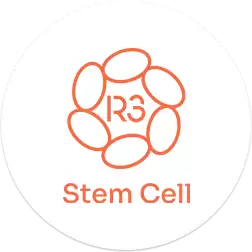Developments in regenerative medicine have begun to characterize a new view of the future of healthcare. These regenerative patterns offer a novel innovation, perfectly placed to completely transform the healthcare industry by providing the likelihood of explicit solutions to patients. Ultimately, the significant aim of regenerative medicine is to make the next step from alleviation to a definite cure.
WHAT IS REGENERATIVE MEDICINE
 Regenerative medicine is a novel aspect of healthcare that seeks to replace tissue or organs damaged due to disease, trauma, or congenital issues.
Regenerative medicine is a novel aspect of healthcare that seeks to replace tissue or organs damaged due to disease, trauma, or congenital issues.
The diverse field of regenerative medicine takes theories from a couple of major interdisciplinary pieces of research – gene editing, cell therapy, tissue engineering, and gene therapy. All multidisciplinary research focuses on specific tasks.
- Gene therapy – Regenerative medicine focuses on disabling changed or mutated genes.
- Cell therapy – With this, the focus is on restoring certain types of cells.
- Tissue engineering – This discipline focuses on using scaffolds to foster the attachment and productivity of cells that can be injected into an injury to regenerate the damaged tissues.
- Gene editing – With this, the focus focuses on manipulating the genetic material of a living organism by deleting, replacing, or inserting a DNA sequence.
From these researches, regenerative medicine has been categorized into four – human substances (protein and genes), cells and tissues, embryonic stem cells, and novel materials.
STEM CELL THERAPY FOR TORN MENISCUS
Before now, surgery has been the predominant treatment method for a meniscus tear. Yet, the destructive nature of surgeries, especially in critical areas such as the knee joint, brought the need for a safer alternative.
In line with this, stem cells are an effective alternative to surgical procedures for knee conditions such as a torn meniscus.
Stem cells’ regenerative capabilities improve the body’s natural healing and regenerative process on injured cartilage tissues. It is a minimally invasive procedure compared to surgeries that often result in risks of complications.
HOW IS REGENERATIVE MEDICINE TRANSFORMING HEALTHCARE
Regenerative medicine aims to treat conditions that were once deemed terminal. It also looks to go from mitigating symptoms to addressing the underlying cause of illnesses. Projected to account for 10 percent of all clinical care within the next decade, there is no doubt this field of medicine would completely revolutionize the industry. Here are examples of how regenerative medicine can transform healthcare.
CANCER TREATMENT
Cancer has always been a dreaded illness with very little chance of success. Even when treated, medical professionals have not been able to obliterate the cancerous growth, which means it would most likely resurface after some time.
Today, regenerative medicine such as CAR T-cell therapy unearths the body’s immune system to search and destroy all traces of cancer in the body. This includes B-cell leukemias and lymphomas. The number of trials involving this therapy has skyrocketed, and with new treatments expected to be approved, it’s only a matter of time till cancer loses its “terminal” tag.
MUSCULOSKELETAL TREATMENTS
Early research has shown how effective stem cell treatment could be for people paralyzed from spinal cord issues. Preliminary tests have yielded very positive results, with the most notable example cited in the case of a paralyzed man that regained the ability to stand and move with assistance.
Other musculoskeletal injuries, such as muscle, joint, and tendon issues, have also been treated effectively with regenerative medicine. This represents massive progress in healthcare and will no doubt revolutionize how healthcare is administered.
FINAL THOUGHTS
There are so many other applications of regenerative medicines, including larynx transplants, lymph node transplants, and maternal-fetal therapy. One important future area of development is organ regeneration.
At R3 stem cell institute, we are at the forefront of regenerative medicine, utilizing different regenerative therapies to treat various injuries and ailments. Contact us today, and we will be happy to answer all your questions.

Dr. David Greene
MD, PhD, MBA
Dr. David Greene, MD, PhD, MBA, is a pioneering leader in regenerative medicine and healthcare marketing. As a residency and fellowship-trained orthopedic surgeon, Dr. Greene transitioned from clinical practice to become the founder and CEO of R3 Stem Cell and US Lead Network, where he has revolutionized patient care and medical practice growth through innovative therapies and digital marketing strategies. He has authored two influential books on healthcare internet marketing, ranks among the top expert authors globally, and has been featured on the cover of Corporate Vision magazine for his impact on global regenerative therapies. Beyond his professional achievements, Dr. Greene is passionate about education, compassion, and continuous innovation.


Sorry, the comment form is closed at this time.